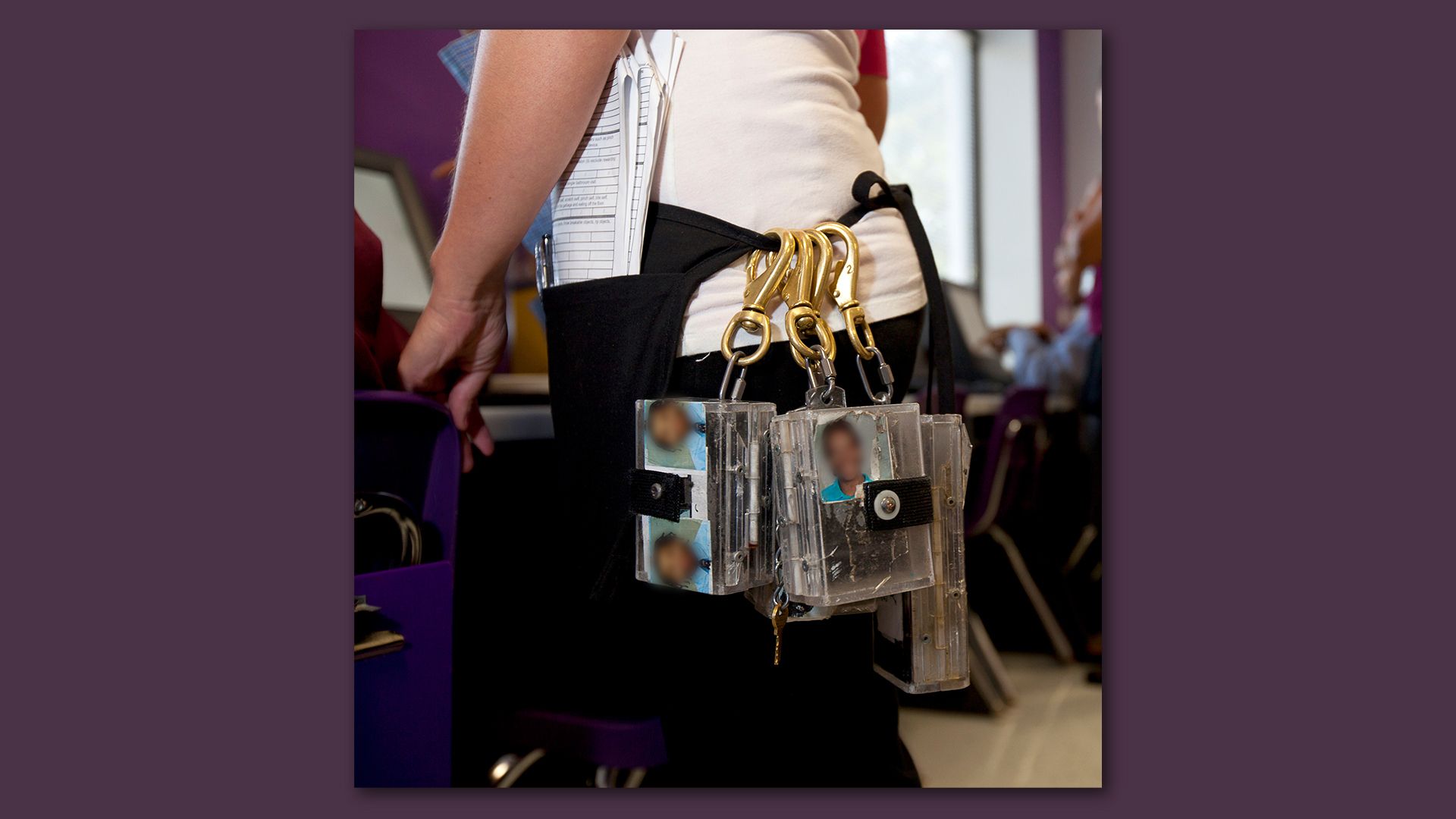Court overturns FDA ban on school's use of electric shock devices
Add Axios as your preferred source to
see more of our stories on Google.

A teacher wears shock treatment transmitters during class at Judge Rotenberg Center in Canton. Credit: Rick Friedman/Corbis via Getty Images (faces blurred to protect the privacy of the students)
A Massachusetts school can continue using electric shock devices to enforce corrective behavior in students with intellectual disabilities, a federal court ruled this month.
Why it matters: Critics including the United Nations have described the controversial practice as "torture."
- Judge Rotenberg Educational Center treats patients with a range of disabilities and uses the devices to correct self-harming or aggressive behavior in students with psychiatric, behavioral or emotional challenges.
State of play: The Food and Drug Administration (FDA) implemented a ban of the practice in March 2020, warning that it can cause long-lasting trauma.
- The ban was national, but the Judge Rotenberg Educational Center was the only school known to have used the device in recent years, the New York Times noted.
- Evidence of the devices' efficacy is "weak," the FDA said. Delivering shocks results in "an unreasonable and substantial risk of illness or injury."
- Critics say it also abuses people with disabilities. Shain Neumeier, a lawyer who has represented the center's former residents, told the Times that many are unable to give consent themselves.
- "This approach involves a lot of dehumanization, an idea that you’re basically training a dog," they said. "Or you’re trying to get a person to do what you want, rather than follow their own goals and get their own needs met."
- Former residents have spoken out about enduring burn marks, accidental shocks and other abuse.
- "It’s not safe. It doesn’t feel safe," Jennifer Msumba, a student from 2002 to 2009, said in a 2014 testimony to the FDA. "I ended up having nightmares weekly, if not nightly."
How it works: Students wear a special fanny pack with two protruding wires that are attached to the arm or leg. A staff member with a remote-control device can then trigger quick shocks to the skin.
- The center has used such devices for decades, according to the Times. Parents must request and consent to the practice. A local judge also has to approve it for use on specific students.
- Some students' parents have defended the policy, arguing it put a stop to harmful behavior when nothing else could.
- One parent told the Times that his son, who had been inducing vomiting, was "nearly dead" when he arrived for treatment at the facility.
- The devices are currently approved for use on 55 people. All are adults, though some were first subjected to the treatment as children.
What they're saying: The judges ruled 2-1 last week that the federal ban interferes with doctors' ability to treat patients at the school.
- "[T]he FDA lacks the statutory authority to ban a medical device for a particular use," the opinion stated, noting that the decision does not address the actual merits of the ban.
- "With the treatment, these residents can continue to participate in enriching experiences, enjoy visits with their families and, most importantly, live in safety and freedom from self-injurious and aggressive behaviors," the school said in a statement following the ruling, per Reuters.
- The FDA declined to comment, citing ongoing litigation.
